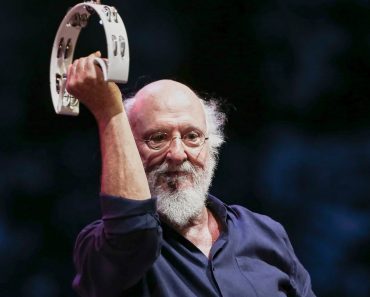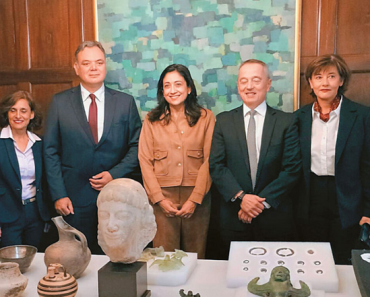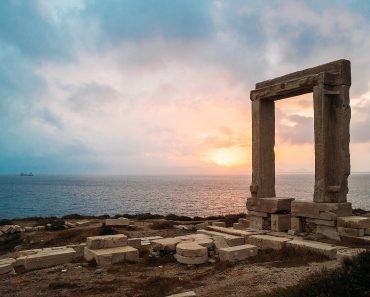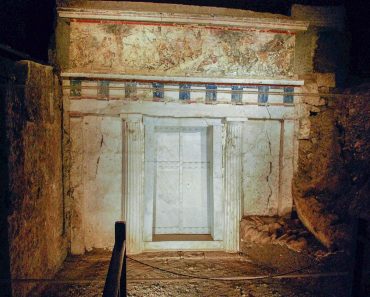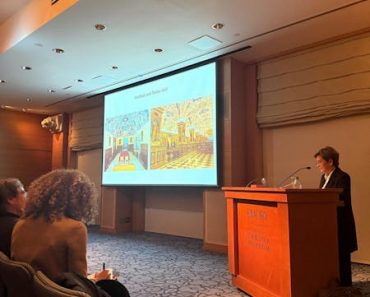I still remember vividly the day Australia’s Governor-General, Sir John Kerr – the Queen’s representative – dismissed the country’s democratically elected Prime Minister, Gough Whitlam.
It was one of the most dramatic moments in Australian democratic history, a rupture that left a mark not only on the nation’s politics but also on the Greek community, whose collective memory already carried the scars of coups, royal interventions, and political upheaval.
That day I was standing on Lonsdale Street, Melbourne’s “Little Athens,” outside Salapatas’ newsagency, where hundreds of Greeks gathered daily to pick up the latest Athenian papers. Most were recent arrivals, politically charged, and nearly all passionate supporters of Whitlam.
Having grown up in a politically engaged family, I understood what a crisis of democracy meant. My father was a staunch Venizelist and later a representative of the Centre Union Party in our village, Egrigoros on the island of Chios. I grew up listening to heated debates about the “Apostasy” of 1965, the toppling of George Papandreou’s government by King Constantine, the “apostate” governments that followed, and of course, the dictatorship of 1967. So, when I looked at Whitlam, I often thought of Papandreou — a man of popular appeal, reformist vision, and boundless energy.

A leader the Greeks loved
Gough Whitlam, a self-declared philhellene, served as Prime Minister from 1972 to 1975 with the Australian Labor Party. For many, he remains Australia’s greatest reformist leader. The Greek community adored him — his electoral support in heavily Greek suburbs was overwhelming.
Although he won two elections, he held office for only three years before being dismissed — unconstitutionally, many argued — by Sir John Kerr, the Queen’s representative. There were even rumours of foreign intelligence involvement.
Even his political opponents later called him a “political giant,” acknowledging his legacy. Under Whitlam, Australia withdrew from the Vietnam War, ended conscription, introduced universal healthcare (Medicare), abolished university tuition fees, recognised Aboriginal land rights, and turned its foreign policy focus toward Asia. His government also laid the groundwork for multiculturalism — a gift to all migrant communities.
He was a personal friend of Andreas Papandreou and, in April 1974, despite the objections of Greece’s military junta, welcomed him to the prime minister’s residence in Canberra. Papandreou — then leader of the Panhellenic Liberation Movement (PAK) — was accompanied by Neos Kosmos founder Dimitris Gogos, ACTU president (and future Prime Minister) Bob Hawke, and Neos Kosmos‘s Sydney correspondent, later Labor senator, Takis Kaldis.
Whitlam had studied Ancient Greek, knew both ancient and modern Greek history, and often visited Greece. He was an outspoken advocate for the return of the Parthenon Marbles and was known to read Neos Kosmos. When in Melbourne, he would occasionally stroll down Lonsdale Street with his friend, Greek wrestler George Gouliovas, for a coffee. For years, he also served as patron of the Antipodes Festival.

The day democracy cracked
When news of his dismissal broke, Lonsdale Street fell silent. Within minutes, that silence turned to outrage. Plans for demonstrations spread like wildfire. The first rally was held that very afternoon in Melbourne’s city square. Neos Kosmos printed a special edition, its front page declaring “Coup d’État,” drawing direct parallels to Greece’s own seven-year dictatorship.
In the days that followed, protests multiplied. The chant “We Want Gough” echoed through the streets and squares. Leading the charge were community figures such as Theodoros Sidiropoulos, George Zagalis, Takis Gogos, Nondas Pezaros, Christos Mourikis, Nikos Kyriakopoulos, and George Foundas — all rallying through the pages of Neos Kosmos.
Reports from the time capture the rapid mobilisation of workers, students, and community leaders carrying banners reading “Sack Kerr” and “Fight to Win Democracy.” Community spokespeople — among them S. Angelidis, V. Keramas (who later served as Andreas Papandreou’s chief of security), and M. Nikolakou — condemned the act as “an undemocratic intervention,” warning that Australia was “sliding towards dictatorship.”
Neos Kosmos played a crucial role. It wasn’t just reporting — it was acting as the conscience of the Greek-Australian community. Through articles, images, and editorials, it gave voice to a migrant population deeply invested in equality, representation, and justice.

By 20 November, the paper’s tone had shifted from anger to unity. The front page declared: “The Greeks of Melbourne Have Spoken: WHITLAM – DEMOCRACY!”
Around 5,000 Greeks attended a massive rally, filled with chants, songs, and speeches. Whitlam was presented not merely as a political leader, but as a symbol of social justice and the champion of migrant Australia.
A divided community — but a united lesson
Of course, not all Greeks agreed. Some conservatives, aligned with the Liberal Party, welcomed the dismissal. Certain Greek-language newspapers supported Kerr’s decision. There were tensions in Lonsdale Street — and, as we used to laugh years later, a few punches were even thrown.
Demonstrations continued against Malcolm Fraser, the caretaker Prime Minister who led the country to elections — which he won comfortably with the backing of most major media outlets. Yet, in time, Fraser too — guided by advisor Petro Georgiou — became a staunch supporter of multiculturalism and migrant inclusion.

The legacy of that day
Nearly fifty years later, the Dismissal remains one of the most controversial chapters in Australian political history. But for us Greek migrants, it was more than that.
It was a lesson in democracy’s fragility, an awakening of collective identity, a test of political maturity.
Above all, it was the day our community took to the streets — shouting not only “We Want Gough,” but, perhaps unconsciously, “We will not live through this again.”


